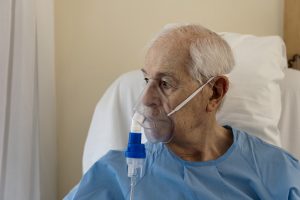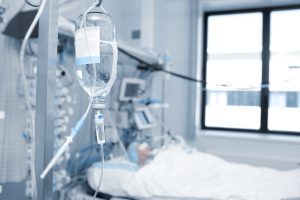Post-sepsis Syndrome from a Survivor

So, you’ve survived SEPSIS! Congratulations!! No, seriously. CONGRATULATIONS! You are one of the few who has left the hospital as a living person. This is a good thing. Now what?
Well if you thought “sepsis” was gloomy and spoken of only in hushed tones; wait until you read about “post sepsis syndrome”. This will knock your socks off.
According to the Sepsis Alliance here are a few basics on post sepsis syndrome;
Post-sepsis syndrome is a condition that affects up to 50% of sepsis survivors. They are left with physical and/or psychological long-term effects, such as:
-
Insomnia, difficulty getting to sleep or staying asleep
-
Nightmares, vivid hallucinations and panic attacks
-
Disabling muscle and joint pains
-
Extreme fatigue
-
Poor concentration
-
Decreased mental (cognitive) functioning
-
Loss of self-esteem and self-belief
Here’s the rest of my story.
As I was wheeled out of the hospital’s front doors I was immediately overwhelmed by the outside world. I know it may not seem understandable, but as I looked around and saw everyone going about their lives and felt the warm spring wind and sunlight on my face, I felt very “small and insignificant”. Everything I’d been through, all the complications, surgeries, fevers, pain and suffering seemed so pointless, and I began to cry. The attendant and my husband were frightened by my crying. They asked questions trying to understand. I couldn’t explain. I mumbled and spoke in words that were more confusing than my tears. It was surreal. I couldn’t understand myself, so how was I to explain it to others? I waved them off in a reassuring manner.
On the 110-mile drive home, I seemed to settle into “this is my new normal” and questioned each movement, thought and more. By the time I walked through the door, my complicated and confused thinking and feeling was overwhelming. I was frightened in my own home. At one point, I came close to turning around and wanting to return to the hospital. In a sense, the hospital felt safer than home. Spring was in full bloom. I could hear our cow in the fields. It was my home. It was normal, I was the problem. It was me.
I could only walk about 6 feet with the help of my walker. I needed help getting out of bed, out of a chair. I settled into a newer routine of physical therapy three times per week. The PT was reassuring that my strength would improve. IV antibiotics were given at the end of my dialysis treatments at home. There were practice walks through the house to try and increase my strength; a chair to sit on for showering as I couldn’t stand that long on my own. My hair began to fall out; by the hands full daily. My pillowcase was covered in it when I awoke and the drain in the shower was clogged with my hair when I’d finished washing up. That was daunting for me.
Then came the night sweats, the nightmares (being eaten by giant cockroaches in ER or ICU) and waking in the darkness of night. It would always take me about a minute to recognize or realize where I was. I would reach across the bed to feel my husband and was always reassured when he would pull my arm close and tuck it under his arm. This was the comfort and assurance I needed. Often, I would awake thinking I was still in hospital. The near constant whining in my mind of how very weary I felt and how deeply my muscles, joints and bones hurt added to my mental fog. I couldn’t read books like I used to. I couldn’t seem to focus so I tried only short bursts of ten minutes here or there and increased when I could and stopped when I could go no further.
To my family I had seemingly endless questions of, “then what happened?” I felt like a failure and more. Although I had returned home, I was in worse condition than before, a broken person with a broken body as if I’d been a doll and shaken so hard I was a limply, sad shell of what used to be. I felt hungry—yet little appealed to me. There was still some nausea and vomiting even weeks later. I seemed to live on English muffins with butter and a side of cheese. It was mild and seemed to stay down. I’d lost weight, but not so much fat as muscle. I worked hard to walk our hall multiple times daily to regain what I could, and went back to work once to say hi to my co-workers and friends. I could see the shock in their faces of how badly I looked, and didn’t return again for months.. I saw it in my own face every time I looked in the mirror.
I grasped for certain words and if I wrote anything I always seemed to displace every few words or so. It was frustrating: it felt I couldn’t even think in the proper context of a thought. The routines continued, dialysis, walking, thinking and speaking with the right thoughts in the right place. I quit cooking nearly altogether. To this day, one leg is always weaker than the other and my balance is way off. Depending upon my pain on any given day, its likely I won’t walk further than 20-30 feet on my own. Since my first stay with sepsis I now have chronic low blood pressure and I mean low—often 60/30. No explanation, it’s just part of my daily life. I’ve tried the meds to no avail. My husband has taken over many of the chores of daily living, which often makes me feel a failure. Now, due to other issues, I hunch over unable to stand or sit straight for longer than a few minutes. I manage the budget, pay the bills, make the calls, appointments and volunteer wherever and whenever I can; it helps me stay sane. It helps me feel accepted, valued, needed. Isn’t that what we all want?
Finally, the worst is the constant, quiet, ever present state of fear. Every time I need dialysis done in a hospital or clinic I think “is this the day I get sepsis”? I wait for the fevers, the chills the vomiting. I count the hours and days until I’m sure it passed. I have panic attacks and often cancel appointments, fearful that if I touch this or that, shake someone’s hand it will quietly make its way inside. The untrusting part of me glares out to monitor those part of my healthcare team, ME wanting to safeguard ME. If I start to feel punky I worry “is this it, do I have sepsis again? Will I die this time”?
Eventually some of my strength returned, so I graduated to a cane. Lost memories, night sweats, insomnia, loss of self-esteem, lack of confidence, pain and poor concentration are now to be my life-long friends. You see, once you’ve had sepsis you’re at a higher risk of acquiring it again. I did. I have. Three years later found me in the hospital with sepsis, pneumonia and c-diff. Two years after that I ended up with sepsis twice, my fifth time two years after and again in two years my sixth episode with my most recent episode just nine months later. In all seven episodes of sepsis each requiring weeks in the hospital, with procedures, high fevers, weakness and worse. So, when someone looks at me and says, “you just don’t look like you’re doing well”, I just smile and think to myself “actually I’m doing pretty darn good, considering.”
I still suffer most if not all post sepsis syndrome (PSS) symptoms, some days more than others but they’re there waiting to let me know “Hey, you’re going to be okay, but in the meantime…” On the inside, I remind myself that this body of mine has served me well. I’ve overcome horrendous odds and survived. So, you see I don’t call myself a survivor; I am an “overcomer”.
 The Sepsis Alliance also states that:
The Sepsis Alliance also states that:
The risk of having PSS is higher among people who were admitted to an intensive care unit (ICU) and for those who have been in the hospital for extended periods of time. PSS can affect people of any age, but a study from the University of Michigan Health System, published in 2010 the medical journal JAMA, found that older severe sepsis survivors were at higher risk for long-term cognitive impairment and physical problems than others their age who were treated for other illnesses. Their problems ranged from not being able to walk—even though they could before they became ill—to not being able to do everyday activities, such as bathing, toileting, or preparing meals. Changes in mental status can range from no longer being able to perform complicated tasks to not being able to remember everyday things.
The authors wrote, “…60 percent of hospitalizations for severe sepsis were associated with worsened cognitive and physical function among surviving older adults. The odds of acquiring moderate to severe cognitive impairment were 3.3 times higher following an episode of sepsis than for other hospitalizations.”
What causes PSS?
For some patients, the cause of PSS is obvious: blood clots and poor blood circulation while they were ill may have caused gangrene and the need for amputations of fingers, toes, or even limbs. Damage to the lungs can affect breathing. For example, in another University of Michigan Health System study, published in 2012 in the journal Shock, researchers found that sepsis survivors may be more vulnerable to developing viral respiratory (lung) infections.
Other organs may be damaged as well, such as the kidneys or liver.
These lasting physical issues can be explained, but there is more to PSS that cannot yet be explained, such as the disabling fatigue and chronic pain that many survivors experience. Others complain of seemingly unrelated problems, like hair loss that may occur weeks after their discharge from the hospital.
Many sepsis survivors also report symptoms of post-traumatic stress disorder (PTSD). Researchers have already recognized that ICU stays can trigger PTSD, which can last for years.

According to a 2013 Johns Hopkins study that looked at PTSD after ICU stays, people with a history of depression were twice as likely to develop PTSD after being in an ICU. The researchers also found that patients who had sepsis were more likely to develop PTSD. They wrote about the possible sepsis/PTSD connection: “The delirium often associated with ICU stays and post-ICU PTSD may be partially a consequence of inflammation caused by sepsis. This inflammation may lead to a breakdown in the blood-brain barrier, which alters the impact on the brain of narcotics, sedatives and other drugs prescribed in the ICU.”
It is important to note that PSS does not happen only in older patients or in those who were already ill. An editorial published in JAMA in October 2010, addressed PSS. In “The Lingering Consequences of Sepsis,” the author wrote, “The new deficits were relatively more severe among patients who were in better health beforehand, possibly because there was less room for further deterioration among patients who already had poor physical or cognitive function prior to the sepsis episode.”
In other words, healthy people may be expected to rebound quickly from such a serious illness, but healthier people may actually have the opposite experience.
What can be done about PSS?
Post-sepsis syndrome must be recognized by the doctors and other healthcare professionals who care for sepsis survivors, so patients can be directed to the proper resources. Resources may include:
Referrals for emotional and psychological support (counseling, cognitive behavioral therapy or neuropsychiatric assessment).
Physical support, such as physical therapy or neurorehabilitation.
What is post-ICU syndrome and is it the same thing as PSS?
Post-ICU syndrome (PICS) is a recognized problem that can affect patients who have spent time in an intensive care unit or ICU, particularly if they have been sedated or placed on a ventilator. It is not unusual for someone in an ICU to become delirious – sometimes called ICU delirium. The longer a patient is in such a unit, the higher the risk of developing delirium or PICS. A study published in the New England Journal of Medicine found that some of these patients continued to have cognitive (mental) problems a year after discharge.
Here is what the CDC has to say about post-sepsis syndrome:
https://www.cdc.gov/sepsis/pdfs/life-after-sepsis-fact-sheet.pdf
Do all you can to stay sepsis-free. If you do get sepsis and have post sepsis syndrome, keep yourself, friends and family aware and educated about the risks and how to get help once it’s past. Ask for help: you deserve it. Be a survivor. Be a champion. Be a warrior. Be an overcomer. Be whatever you want—just keep living.


Comments
Julie Davis
Dec 16, 2023 8:00 PM
Heather Nicole
Dec 30, 2020 12:47 AM
Steve Crooke
May 31, 2020 11:52 AM
john waddington
Nov 19, 2020 8:40 PM
Forget about suicide because that is the easy way out
Take a step by step and keep deep breathing
I have had sepsis 3 times and recovered
I have also had cancer and other serious problems including minor strokes
You will make it I am sure
Regards John
Angie W
Feb 18, 2020 1:34 PM
Dori Schatell
Feb 24, 2020 10:44 PM
Mol Med. 2019 Dec 31;26(1):6. doi: 10.1186/s10020-019-0132-z.
Post-sepsis syndrome - an evolving entity that afflicts survivors of sepsis.
Mostel Z1,2, Perl A3,4, Marck M3, Mehdi SF3, Lowell B3, Bathija S3, Santosh R3, Pavlov VA5,6, Chavan SS5,6, Roth J3,5,6.
Author information
1 Laboratory of Diabetes and Diabetes-Related Research, Feinstein Institute for Medical Research, Northwell Health, Manhasset, NY, USA. zacharym@mail.tau.ac.il.
2 Sackler School of Medicine, Tel Aviv University, Tel Aviv, Israel. zacharym@mail.tau.ac.il.
3 Laboratory of Diabetes and Diabetes-Related Research, Feinstein Institute for Medical Research, Northwell Health, Manhasset, NY, USA.
4 Sackler School of Medicine, Tel Aviv University, Tel Aviv, Israel.
5 Center for Bioelectronic Medicine and Biomedical Science, Feinstein Institute for Medical Research, Northwell Health, Manhasset, NY, USA.
6 Donald and Barbara Zucker School of Medicine at Hofstra/Northwell, Manhasset, NY, USA.
Abstract
BACKGROUND:
The sequelae of sepsis were once thought to be independent of sepsis itself and assumed to be either comorbid to sick patients or complications of critical illness. Recent studies have reported consistent patterns of functional disabilities in sepsis survivors that can last from months to years after symptoms of active sepsis had resolved. BODY: Post-sepsis syndrome is an emerging pathological entity that has garnered significant interest amongst clinicians and researchers over the last two decades. It is marked by a significantly increased risk of death and a poor health-related quality of life associated with a constellation of long-term effects that persist following the patient's bout with sepsis. These include neurocognitive impairment, functional disability, psychological deficits, and worsening medical conditions.
CONCLUSION:
This "post-sepsis syndrome" has been the subject of active preclinical and clinical research providing new mechanistic insights and approaches linked to survivor well-being. Here we review important aspects of these research efforts and goals of care for patients who survive sepsis.
Annie Davis
Oct 03, 2019 10:19 AM
Tammy
Dec 18, 2019 10:07 AM
Thanks!!!
Nancy clements
Sep 08, 2019 12:35 PM
Nancy clements
Sep 08, 2019 12:35 PM
Sally Murray
Sep 04, 2019 2:06 PM
Now I have post sepsis syndrome!!!
I’m terrified of having it happen again. I have symptoms like
Nightmares every night, my hair is falling out, I can’t concentrate, plus many more.
Started therapy a few weeks ago and hope it will help.
Belonging to a group where people understand is really helpful because you know you are not alone!
Pepai
Feb 22, 2020 1:31 AM
Jo Ann Mccormick
Aug 15, 2019 5:01 AM
Michelle Armstrong
Nov 21, 2019 5:15 PM
Peter
Jul 29, 2019 6:44 PM
Judy More
Jul 20, 2019 3:09 AM
Pete
Jul 09, 2019 2:07 AM
Bill Beardslee
Jun 05, 2019 5:59 PM
With all the anti-opioid concerns doctors are hesitant to order pain meds. Pain doctors want to do nerve blocks but for all over pain that doesn’t work.
Kristeen D.
Apr 12, 2019 4:26 PM
Nancy
Apr 07, 2019 4:19 PM
Susan
Mar 14, 2019 11:50 AM
Joan Fenner
Nov 28, 2018 10:42 PM
Ann Contreras
Oct 13, 2018 8:59 PM
I just wanted to take a minute to thank you for sharing your heartfelt and emotional journey.
There is SO much to CKD that us 'Professionals' and Partners don't know until it's shared as clearly and concisely as you have written.
Again, a heartfelt thank you.
See you on FB!
Ann
Ali Wilson
Sep 28, 2018 1:32 AM
I would stop in my tracks and think, “I could die right here, right now”.
Only therapy and medication has given way to some resemblance of a normal life.